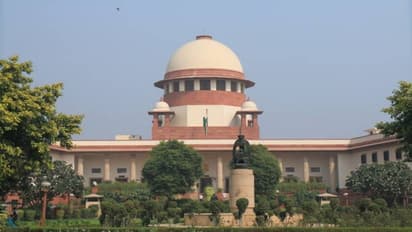SC's big verdict on child pornography: Storing, downloading and watching an offence under POCSO Act

Synopsis
In a significant ruling on Monday, the Supreme Court held that the storage of child pornographic material is an offence under the Protection of Children from Sexual Offences (POCSO) Act.
In a significant ruling on Monday, the Supreme Court held that the storage of child pornographic material is an offence under the Protection of Children from Sexual Offences (POCSO) Act. A bench led by Chief Justice of India DY Chandrachud and Justice JB Pardiwala overturned a recent Madras High Court judgment, which had ruled that merely downloading and viewing child pornography without the intent to transmit does not constitute an offence.
The Supreme Court noted that the High Court had committed an "egregious error" in quashing the criminal proceedings and, therefore, set aside the decision, restoring the criminal prosecution. Section 15 of the POCSO Act outlines three distinct offences, which criminalize the storage or possession of any child pornographic material, particularly when done with the intent to transmit, display, or engage in other actions as specified in the sub-sections of the provision.
This provision functions as an inchoate offence, penalizing the mere storage or possession of any pornographic material involving a child when done with the specific intent outlined in the law, without the need for actual transmission or dissemination.
Sub-section (1) of Section 15 addresses the failure to delete, destroy, or report any child pornographic material found in a person's possession with the intention to share or transmit it. The mens rea, or intent, required under this provision is inferred from the actus reus, meaning it must be determined based on how the material is stored or possessed and the circumstances that led to it not being deleted, destroyed, or reported. For an offence to be established under this provision, the circumstances must clearly indicate the accused's intent to share or transmit such material.
The judgment authored by Justice Pardiwala includes several guidelines for the enforcement of the POCSO Act. The Court also recommended that Parliament amend the term "child pornography" to "child sexual exploitative and abusive material" and urged the Union government to issue an Ordinance to facilitate this change. Additionally, the Court directed all other courts to refrain from using the term "child pornography."
This decision arose from a plea filed by Just Rights for Children Alliance, a coalition of NGOs that expressed concerns about the potential implications of such a ruling on child welfare. Senior Advocate HS Phoolka represented the petitioner.
It is also noteworthy that the Supreme Court is currently reviewing a petition challenging a similar judgment issued by the Kerala High Court. In the present case, a complaint was registered against the accused after the Additional Deputy Commissioner of Police (Crime against Women and Children) received a letter regarding the downloading of child pornographic material on his mobile phone.
The mobile phone was taken during the investigation, and a forensic study revealed that it included two files with images of teenage boys that were intended for children. Section 67B of the Information Technology Act 2000 and Section 14(1) of the POCSO Act were invoked by the court to declare the offence. The accused had filed a request to stop the criminal case with the High Court.
The Madras High Court's ruling was based on a number of important arguments, including the fact that the accused had only downloaded the content for personal use, that it had not been published or transmitted, and that it is not illegal to download and view child pornography in accordance with Section 67-B of the Information Technology Act, 2000.
The single bench stated that a child or children must have been utilized for pornographic purposes in order for there to be offenses under the POCSO Act. The court in this instance observed that although the accused had watched pornographic materials, he or she had not exploited a child or minors for pornographic reasons. The accused's moral decline is the only interpretation that the court could find for this.
The Just Rights for Children alliance voiced worries that the order could inadvertently promote child pornography by creating the appearance that those who acquire and own such content will not be prosecuted. They underlined the detrimental effects on child welfare as well as the possible injury to defenseless children.
"The impugned order, extensively covered in newspapers, gives the impression that individuals who download and possess child pornography will not face prosecution. This will encourage child pornography and would act against the well-being of children. The impression is given to the general public that downloading and possessing child pornography is not an offence and it would increase the demand for Child pornography and encourage people to involve innocent children in pornography," the petition contended.
Stay updated with the Breaking News Today and Latest News from across India and around the world. Get real-time updates, in-depth analysis, and comprehensive coverage of India News, World News, Indian Defence News, Kerala News, and Karnataka News. From politics to current affairs, follow every major story as it unfolds. Get real-time updates from IMD on major cities weather forecasts, including Rain alerts, Cyclone warnings, and temperature trends. Download the Asianet News Official App from the Android Play Store and iPhone App Store for accurate and timely news updates anytime, anywhere.